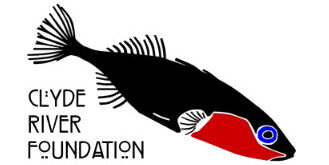American signal crayfish in the Clyde Catchment – A Position Statement
The Clyde River Foundation (CRF) is a registered Scottish charity which researches the ecology of the Clyde and its tributaries and promotes community engagement and environmental education throughout the catchment. The Foundation receives no core funding and has no statutory responsibility for the control of non-native species. The CRF has, however, been involved in the study of the invasive, non-native American signal crayfish since 2002. Our scientists were instrumental in the development of a rapid technique for detecting crayfish in rivers and we have documented the effects of the species on native invertebrates. We involve students from the University of Glasgow in our work, which brings benefits to them and to the river as a whole because we cannot secure funds for the sort of in-depth work they are sometimes able to carry out. We update our distribution records regularly but deliberately choose not to publicise the location of our research, in order to minimise potential theft of traps.
While it is unpalatable, it is nonetheless true that there is currently no effective method of eradicating crayfish from rivers (and that specifically includes trapping). The only effective defence against American signal crayfish is a biosecurity regime which educates the public not to introduce the species to new localities. For that reason, and because evidence from Scandinavia suggests that even licenced trapping inevitably leads to crayfish range extension, we do not promote trapping as a viable method of control in the Clyde system. The Foundation has never been involved in any eradication trials but does sometimes deploy licensed traps for research purposes. We have evidence of illegal, unlicensed trapping taking place in the River Clyde (traps, receipts for traps, social media, etc.) and this has caused the death of at least one otter (see here for original post). Please do not be tempted to break the law – leave licensed traps alone and do not trap illegally. There are, unfortunately, now five (widely spread) populations of signal crayfish known to the CRF in the Clyde catchment. If you find one, please let us know via info@clyderiverfoundation.org.

 L-R: 1) American signal crayfish in the River Clyde catchment; 2) The CRF’s monitoring work is enriched by research projects undertaken by University of Glasgow students; 3) Dead otter removed from a crayfish trap deployed illegally on the River Clyde
L-R: 1) American signal crayfish in the River Clyde catchment; 2) The CRF’s monitoring work is enriched by research projects undertaken by University of Glasgow students; 3) Dead otter removed from a crayfish trap deployed illegally on the River Clyde